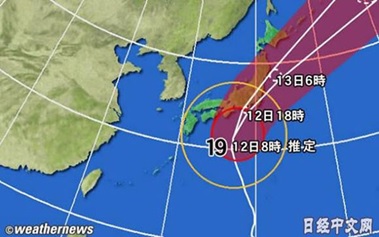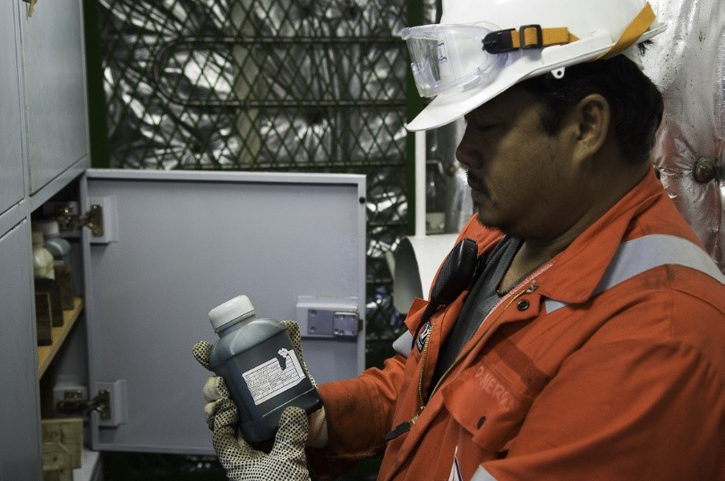Guidelines for seafarers to prevent Coronavirus infections
- What is a coronavirus?
Coronary viruses are a large class of viruses known to cause disease and can manifest from common colds to severe lung infections such as Middle East Respiratory Syndrome (MERS) and Severe Acute Respiratory Syndrome (SARS). The new coronavirus (nCoV) is a new coronavirus that has not been previously found in humans, so the new coronavirus 2019-nCov in Wuhan, China.

- How long is the incubation period of coronavirus?
The current incubation period of the virus, from the existing cases, the average is about 7 days, short 2 to 3 days, long 14 days.
- What are the symptoms of the new coronavirus infection?
As far as current cases are concerned, the main symptoms are fever, low fever and even high fever, dry cough, muscle aches or weaknesses, shortness of breath and chest tightness after three or five days, and respiratory failure and shock in some patients. There are other atypical symptoms, such as diarrhea, accompanied by high or low fever symptoms.
- Under what circumstances do I need medical attention?
Where there are symptoms of fever to seek medical attention in time, especially in cases of contact, as soon as possible.
- What is a close contact?
Persons living, studying, working or otherwise in close contact with the case; Medical personnel, family members or other persons who have similar close contact with the case when treating, nursing or visiting cases without effective protective measures; Case of the same patients and other patients and escorts in the same room; Travelling in the same vehicle as the case and having close contact with persons; After investigation by the on-site investigators, the person sat assessed as eligible.
Crew outbreak prevention and control measures
Ship mobility is large, the ship space is small and closed, the crew activities are dense, and lack of effective medical support and protection on land, so once the ship outbreak, it will be difficult to effectively control. In the light of the World Health Organization’s Interim Guide to the Prevention and Control of Acute Respiratory Disease Infections In Health Care, and the experience of measures taken in 2002 to prevent SARS outbreaks on ships, the following preventive recommendations are made for ships:
Timely notification and report
The shipping company shall promptly inform the shore base and the ship of the progress of the coronavirus situation, shall not conceal the report, and shall make the staff and crew fully aware of the risk of the new coronavirus.
Try not to change the crew
During the period of heavy passenger traffic and the epidemic is not effectively controlled, try not to change the crew, so as not to increase the chance of cross-infection in the population.
Reducing ship/shore operation
The shipping company shall formulate a temporary safety policy and, in the near future, try not to arrange activities such as ship/shore operation, boarding inspection, internal audit and external audit, maintenance and maintenance, and prohibit all boarding visits and family visits.
Enhance gangway watch and access control
During the berthing operation of the ship, the master shall urge gangway watch to enhance the control of gangway and all possible access, strictly check the documents of all boarding personnel, and all unrelated personnel shall be prohibited from boarding the ship. At the same time, in countries and ports where outbreaks are reported, crews are prohibited from leaving ships during berthing.
Strict control of restricted areas
Ships shall strictly control the area of activity of the shore personnel on board the ship, set up a cargo room and reception room on the main deck, and control the entry of agents, cargo management, foreman, suppliers and other shore personnel into the crew living area.
Pay attention to food safety
*Ship meals should be purchased from regular suppliers, to avoid the purchase of food from the ports and areas where the outbreak was found, and in the near future, more fresh vegetables and fruits should be replenished to reduce the intake of meat and poultry products.
*Raw food and cooked food boards and knives should be separated, do not eat raw food, especially raw meat and seafood.
*In particular, be careful not to eat wild animal.
Enhanced protection configuration
The company should take the initiative to provide ships with protective masks in accordance with the regulations (surgical mask), crew members should wear masks throughout the berthing period, avoid close contact with anyone with cold or flu symptoms, during berthing to avoid going out to public places and with livestock and wildlife contact.
Conduct in-out of suspected screening
The captain should strengthen the safety of suspected cases of the ship, and if any outsider is found to have symptoms such as colds, coughs and fever during berthing, he should immediately remove the ship and notify the agent and foreman or the relevant management organization at the same time; Do not allow the asymptomatic crew to participate in group activities and promptly notify the company of the crew’s symptoms.
Pay attention to personal hygiene
The crew should wash their hands frequently, bathe frequently, change clothes frequently, use soap or healthy hand sanitizer when washing their hands, put clothes that work outside in the dressing room, do not wear back to their rooms, and wash their work clothes with disinfectant. Apply paper towels or elbows to cover your mouth and nose when coughing and sneezing to prevent droplets from splashing, and used paper towels are best treated centrally.
In addition, the crew in particular should maintain good working habits during this period to ensure adequate sleep: lack of sleep on the seaman’s brain nervous system function is harmful, not only memory difficulties, emotional instability, inefficient work, but also reduce the body’s immunity, and thus reduce the body’s defense against coronavirus. Strengthen physical exercise: in the boat to develop the habit of conscious exercise, active exercise, maintain the right weight, strengthen the physique. Quit smoking less alcohol: On the Internet spread that “smoking can prevent coronavirus infection”, the People’s Daily solemnly dispel rumors, “Smoking will not only reduce the body’s resistance, increase the chance of infection, but also in case of infection the risk of serious illness is greater.”
Correct hand washing procedures








 简体中文
简体中文